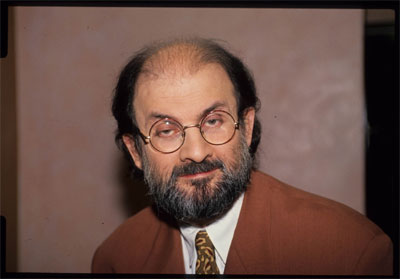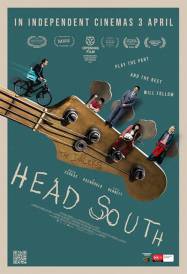The Satanic Verses Affair

The Satanic Verses Affair
The 20th anniversary of the infamous book that caused the breakdown of international relations, sparked violent riots across the world and forced the author into hiding.
Twenty years ago on St Valentine's Day- all around Britain couples were sending tokens of their love while 3,000 miles and 3 time zones ahead in Iran, Radio Teheran was broadcasting a message of an entirely different sentiment- a Fatwa. Issued by Iran's spiritual leader, Ayatollah Khomeini, this Islamic legal opinion was directed at Salman Rushdie, the author of the novel- The Satanic Verses, effectively sentencing him to death.
No other book in recent times has inspired such controversy, sparking riots across the Muslim world and creating an international diplomatic crisis on such a global scale. Never before had a foreign Government publicly called for the killing of a private citizen of another country. This film looks back on the extraordinary events which followed the publication of the book and the ten year campaign to get the fatwa lifted. Looking into the build up, the outcry, the protests that surrounded the release of the book in the late '80s The Satanic Verses Affair revisits the eye of the storm.
Interviews with Rushdie's friends and family (including writers Fay Weldon and Hanif Kureishi and Rushdie's sister Sameen Rushdie) and testimony from leaders of Britain's Muslim community and the government reveal the inside story of the affair. Rushdie himself was forced into hiding for nearly ten years. Arguably this was the moment when religious identities, in Britain and abroad, became more important than ethnic and cultural belonging.
Featuring a combination of personal testimony from those caught up in the controversy, film and diary archive footage and dramatic reconstruction, this programme details the events that surrounded the publication of this text, examining how the reaction to and criticism of the text was far and above that which was expected - or planned for.
Today, British Muslims are still divided on the fatwa. Looking back on the events of the last 20 years, Inayat Bunglawala, a UK writer on Islamic Affairs commented; 'We were wrong to have called for the book to have been banned, we were wrong to have supported the fatwa. The images that it's left behind in the minds of many British people are… are very negative ones and I would like to think that British Muslims would now respond differently. That if they were faced with the same scenario, they would not call for the book to be banned. Instead, they would seek to contest it on the plain of ideas.'
21st Anniversary Compass: ABC 1
MORE



